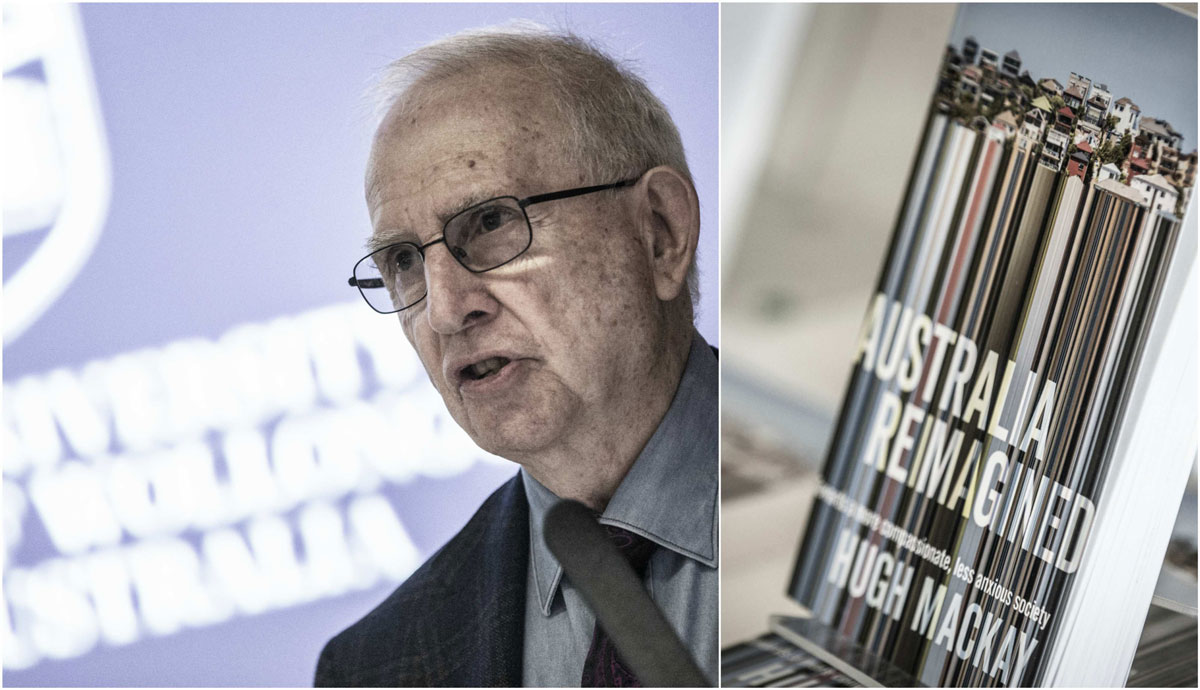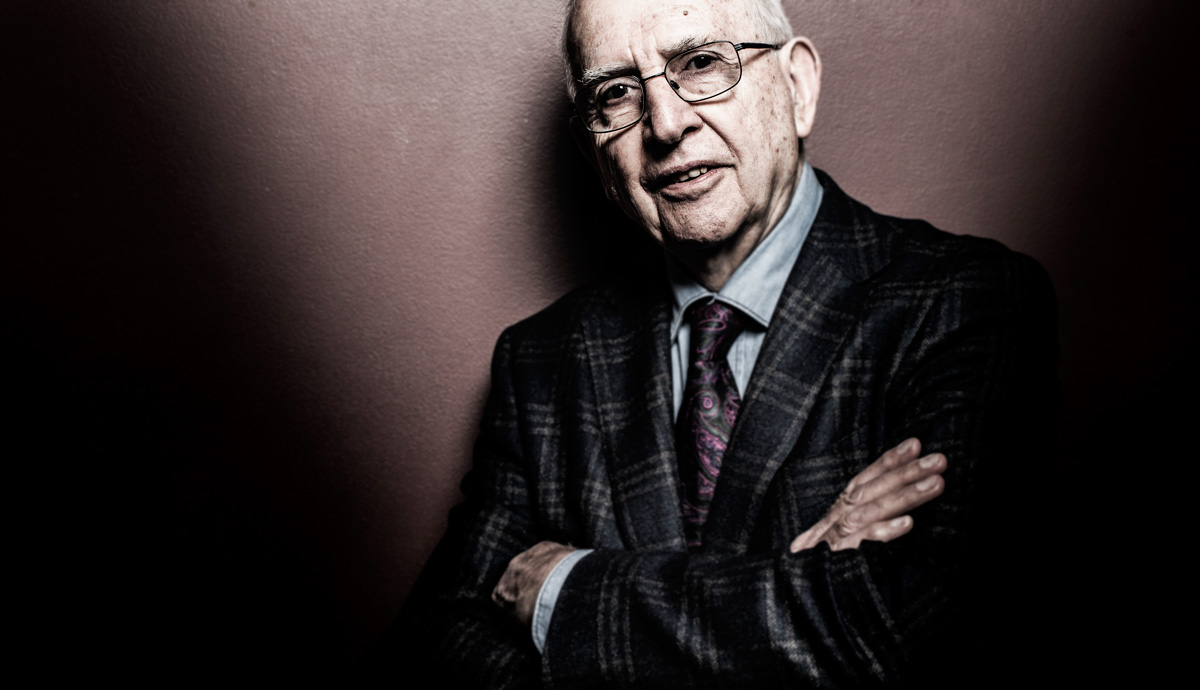July 3, 2018
Dr Hugh Mackay shares his vision for a 'compassionate, community-focused' future
Best-selling author aims to address epidemic of social anxiety in latest book
Dr Hugh Mackay has dedicated his life to uncovering what makes us tick. The best-selling author and renowned social researcher has shone a light on who we are, how we live, the relationships we create, and the thread of our social fabric.
Now, as he enters his ninth decade, Dr Mackay has published his “most outspoken” book ever, on a topic he feels very passionate about: how we can rediscover our compassion, cohesion, and sense of community.
“I am usually more restrained in my research,” said Dr Mackay, who has authored 19 books. “But with this book, I had to come out more strongly, because we’ve got to do better. It’s partly to do with age, because I think at this point I’m entitled to speak my mind, but the other reason is that this is the last book of this kind I will write.”
The book in question is Australia Reimagined: Towards A More Compassionate, Less Anxious Society, a fascinating look at the current state of our nation, where we’ve gone wrong and how we can make things right.
for a Q+A and book signing, the final stop on his launch tour for the book. But after two months of addressing audiences, he clearly still relishes sharing his message with the public.
He said he was motivated to write Australia Reimagined after witnessing the shifts, both big and small, that have spread through society over the past few generations.
“Australia has become a more fragmented society over the past 25 or 30 years. We’ve had 26 years of economic growth, but things have not necessarily improved. At the same time, more people are living alone, there are more relationship, more kids are living with just one of their parents. There are a lot more feelings of social isolation.
“The haves are doing spectacularly well, but for the have nots, there is a growing income inequality gap. People are a bit confused and disillusioned. They are disappointed in so many institutions, such as the banks, politics, the unions, sport, the mass media. When society is in a troubled state, I think it’s very appropriate to shine a light on it and see how we got there.”
Dr Mackay says there is much to be proud of in modern Australian society, but the ties that bind us – of community, family, friends – are not as strong as they once were, and we are now beginning to feel their loss.
“We are suffering an epidemic of anxiety. Humans are social animals, we belong together and we need communities and neighbourhoods to nurture us. Our mental health depends upon being part of an engaged local neighbourhood. When that is not happening, it’s inevitable that we pay a high mental and emotional price.”
He explains that in prison, solitary confinement is the greatest punishment meted out to inmates, but outside the prison walls, we are voluntary cutting ourselves off from each other, choosing instead to connect via screens and devices.
“For humans, being cut off from the tribe is a terrible punishment, but more people than ever before are feeling that sense of isolation.”

During his speech at UOW, Dr Mackay told the audience that it is not too late to change the direction of society, but it must come on an individual level. We need to begin to reach out to those who are literally closest to us – our neighbours – and rebuild our sense of community.
He says most people don’t realise the extent to which they are isolated from their community until they are forced to confront it.
“We need to be more involved in our local communities. And it needs to start with the individual, street by street. The state of our nation starts in our own street, so we need to be alert to people who are at risk of social isolation, who are at risk of depression and anxiety,” Dr Mackay says.
“It doesn’t mean we have to be best friends with our neighbours. But the role of neighbours is a very precious, special role, which is different from our friends, family, and colleagues.
“I find that it’s only when it’s pointed out, when people say ‘Oh I don’t know my neighbours’, that they realise it’s a bad thing.”
In the past, Dr Mackay’s work - in both fiction and non-fiction - has explored the themes of religion, ethics, communication, infidelity, consumerism, and the state of society.
He is clearly passionate about the human condition, and says he is endlessly fascinated about what makes people tick. But despite the prevailing sense of doom and gloom that he feels is prevailing in society, he is endlessly optimistic about what the future holds.
“My curiosity has always been a big feature of who I am. Since I was a kid, I’ve been so interested in why people say one thing, then do another. Why are we so often quite irrational, when we spend so much time pretending to be rational creatures?,” he says.
“Whenever I spend time with younger people, the much-maligned millennials, I think they are much better equipped to deal with the changes in society. They understand the need to work more cooperatively, to be less competitive, less individualistic. They are the keys to a better future.”
